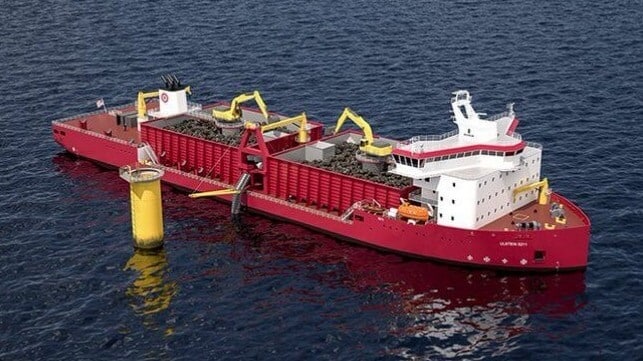Philly Shipyard Sued Over Construction Delays on Rock Installation Vessel
Great Lakes Dredge & Dock Takes Philly Shipyard to Court Over Delays on Wind Power Vessel

Great Lakes Dredge & Dock Sues Philly Shipyard Over Construction Delays
Great Lakes Dredge & Dock Company has filed a lawsuit against Philly Shipyard in the U.S. Eastern District Court. The disagreement is about construction delays and changes to the building plan for a special rock installation vessel, which is crucial for the company’s offshore wind projects. Great Lakes is asking the court to put a stop to these delays and force the shipyard to stick to the original plan. The company wants a restraining order and a preliminary injunction, saying it is facing serious problems because of the ongoing delays.
Timeline Disputes and Contract Issues
Great Lakes Dredge & Dock made it clear from the start that timing was critical. According to court papers, Philly Shipyard originally did not meet the schedule requirements when they submitted a bid. However, after a revised proposal, the shipyard won the contract in November 2021. The agreed delivery date was set for November 15, 2024.
The contract was for a 461-foot-long fallpipe vessel, valued at $197 million. This ship, called Arcadia, is meant to support the growing offshore wind sector by placing large rocks on the ocean floor to create a stable base for wind turbine structures. The ship can carry up to 20,000 metric tons of rock and lay down foundations underwater for wind turbines.
President Biden’s Visit and Construction Challenges
The project began with excitement. In July 2023, President Joe Biden visited the shipyard to celebrate the first steel cut for the new vessel. By May 2024, the assembly of Arcadia had started. Great Lakes agreed to two changes to the contract that set a new delivery deadline of February 14, 2025.
However, the company now claims that Philly Shipyard is not sticking to the contract. They argue that the shipyard has suggested new delivery dates that are much later, with delays ranging up to 593 days. Between August and October 2024, Philly Shipyard reportedly shifted the timeline several times—from October 30, 2025, to as late as September 30, 2026.
Court Complaints and Allegations
In its court filing, Great Lakes said it has lost patience. They accuse Philly Shipyard of not taking the contract seriously, making empty promises, and breaking their agreement. The shipyard, according to Great Lakes, has prioritized other projects at the expense of completing the rock vessel. The complaint also says that Philly Shipyard does not have enough workers, has laid off staff, and is sharing resources between different projects, causing further delays.
Great Lakes wants the court to block a plan to move the incomplete vessel. Philly Shipyard intends to float the unfinished ship to make space for another ship in the assembly dock. Great Lakes argues that this would cause more delays and insists that the vessel is not ready to be floated.
What Great Lakes is Asking for
The company is requesting several court orders. They want the court to:
- Stop Philly Shipyard from moving the incomplete vessel.
- Prevent the shipyard from using shared resources for other projects.
- Order Philly Shipyard to create and follow a strict construction schedule.
- Ensure that purchase orders are placed within 60 days.
- Speed up delivery of certain materials by shipping them by air.
Philly Shipyard’s Response and Upcoming Court Date
Philly Shipyard has acknowledged the lawsuit, stating that Great Lakes is seeking “injunctive relief” over the project. They said they are still working on Arcadia and are also building three training ships for the U.S. Maritime Administration (MARAD) and a container ship for the Matson shipping company.
District Judge Mary Kay Costello has set a deadline of December 4 for Philly Shipyard to respond to the lawsuit. A hearing is scheduled for December 6 to review the case and consider Great Lakes’ request for an injunction.
What’s Next?
The case is expected to move quickly, as both companies are under pressure to meet deadlines. The decision could have significant impacts on the future of offshore wind projects in the U.S., as the rock installation vessel is seen as a key asset for developing offshore wind farms.
Conclusion
This lawsuit highlights the challenges of complex shipbuilding projects, especially those tied to renewable energy. The outcome of this case will be closely watched by both the maritime and renewable energy industries.
